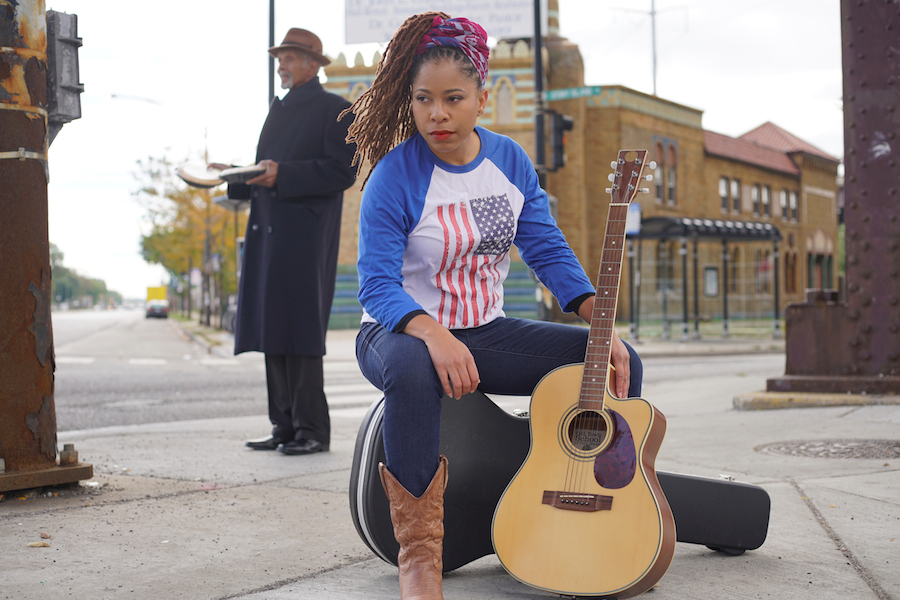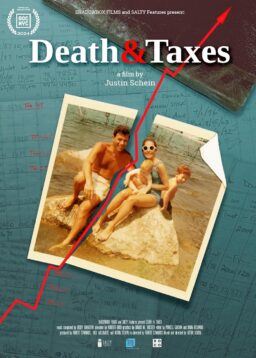The Black Harvest Film Festival founded by the Gene Siskel Film Center’s Director of Programming—and RogerEbert.com contributor—Barbara Scharres, will celebrate its 25th anniversary this year at her beloved Chicago venue, where it is set to run from Saturday, August 3rd, through Thursday, August 29th. Ms. Scharres says the festival will be presenting a bountiful harvest of seventeen new feature films—fictional and documentary—plus scores of new short films, and personal appearances by more than forty filmmakers, including producers, directors, and actors.
“Over 25 years ago when another Black film festival in Chicago was closing, Barbara Scharres felt that it was crucial that Chicago have a Black film festival with a permanent home and staff committed to presenting films that not only screened but celebrated the full range of the Black experience on film,” recalled Jean de St. Aubin, Executive Director of the Gene Siskel Film Center. “One of the original members of the committee who worked with Barbara was the late Terry Glover who suggested the title ‘Black Harvest’ to reflect the bounty of films presented each year. The incredible growth and longevity of the Black Harvest Film Festival is a testament to the need to present a program that celebrates Black culture. The Film Center owes a great deal of thanks to the Black Harvest Community Council, the many participating and returning filmmakers and our growing and loyal audience. The Black Harvest Film Festival is truly a month-long reunion.”
“The most exciting aspect of Black Harvest for us at the Gene Siskel Film Center each year is the fact that the festival has found a solid place as a launching pad for new talent,” Scharres told us. “Seeing first-time filmmakers, or those still in the early stages of promising careers, come into their own as storytellers before an audience is a rare experience. The audiences we attract for Black Harvest are eager, curious, and generous with praise; ready and willing to interact with filmmakers. It’s a nurturing and culturally resonant environment all around, and proves resoundingly each year that there’s an audience for Black film.”
Kicking off the festivities on August 3rd is a program that has been in preparation for nearly two years: “The Black Harvest Feast,” a program featuring the world premieres of five just-completed short films by Midwestern directors. Opening Night is being sponsored by Chaz Ebert and the Ebert Foundation. For the first time in the festival’s history, the Gene Siskel Film Center, with the support of The Joyce Foundation, the Chicago Community Trust, and the Illinois Arts Council Agency, awarded production grants to five proposals vetted by an elite jury of filmmakers and critics. The opening-night audience will see these films for the first time, with filmmakers in person, in a program hosted by NBC Chicago’s LeeAnn Trotter. Immediately after the show, the audience is invited to a reception across the street at the Joffrey Tower.
“It is particularly meaningful to have Chaz Ebert, a long time Opening Night participant and the Roger and Chaz Ebert Foundation, support Opening Night,” added Jean de St. Aubin. “Roger was a champion of filmmakers of color and Chaz honors his legacy by supporting inclusive film programming and promoting empathy through film. We look forward to working with Chaz to present a memorable Opening Night.”

“Two and half decades ago when the Black Harvest Film Festival started, I don’t think anyone had an idea of what it would become,” said Sergio Mims, the festival’s co-founder and programmer, who will be receiving the Black Harvest Film Festival Legacy Award during this year’s festivities. “It was something that just had to be done. There were struggles at first and doubts just like every film festival when it gets off the ground. But the fact that it has lasted this long and has, without question, grown into one of the most significant black festivals not only in the U.S. but in the world is testament to the importance and value of Black Harvest and the dedication to the people who have run it year after year. It is also a testament to the talented filmmakers from around the world who have continued to support us and see the necessity of Black Harvest, as well as to the tens of thousands of filmgoers who have come faithfully every year to be entertained and inspired.”
Feature films made in Chicago include Edward J. Wilson’s “Lost Gurl,” a drama of lost innocence and redemption starring Simeon Henderson, and “Thee Debauchery Ball,” David Weathersby’s documentary look at Chicago’s house music scene. Chicago-based country-music star Liz Toussaint stars in her autobiographical documentary “American as Bean Pie,” while a vital piece of Chicago history is restored and examined in Olivier Sarrazin’s “Bessie Coleman, First Black Aviatrix,” with the aviation pioneer’s great-niece Gigi Coleman Brooms and other special guests in person.
Also among this year’s documentary selections are Jacqueline Olive’s “Always in Season,” which parallels past events with the suspected lynching of a North Carolina high school football star; Erik Ljung’s “The Blood is at the Doorstep,” an examination of a Milwaukee man’s murder at the hands of police; Emily Harrold’s “While I Breathe, I Hope,” a profile of rising Black politician Bakari Sellers in South Carolina; Jeffrey Wolf’s “Bill Traylor: Chasing Ghosts,” a chronicle of paintings and drawings by a former Alabama slave; Max Powers’ “Don’t Be Nice,” a fly-on-the-wall look at a New York poetry-slam team preparing for the nationals; and the Black music portraits “Devil’s Pie—D’Angelo,” directed by Carine Bijlsma, and “It Must Be Schwing! The Blue Note Story,” directed by Eric Friedler and produced by Wim Wenders.
Nearly one-third of this year’s films are directed by women, who are also front and center in films such as Rashaad Ernesto Green’s “Premature,” Jordan Riber’s Tanzanian-set “Fatuma,” Robert Rippberger’s “Strive” co-starring Danny Glover; and Numa Perrier’s “Jezebel,” about a young woman seeking fulfillment as an Internet sex worker. Storm Saulter’s “Sprinter” focuses on the trails faced by a high school athlete, while Damon Jamal’s “Last Night A DJ Saved My Life”, revolves around a star-crossed love affair. Closing night will pay tribute to Spike Lee’s career with a 25th anniversary screening of his 1994 family drama “Crooklyn,” screening in a 35mm print. Actor/co-screenwriter Joie Lee is scheduled to be present for audience discussion.
To purchase tickets and find the full festival line-up, visit the official Siskel Center site.
The Black Harvest Film Festival is supported by the Academy of Motion Picture Arts and Sciences; the Illinois Arts Council Agency; and the Chicago Department of Cultural Affairs and Special Events.











